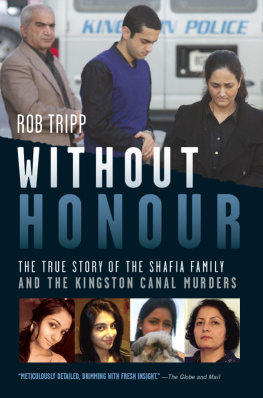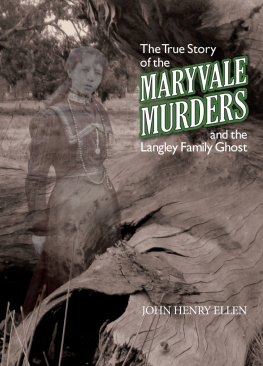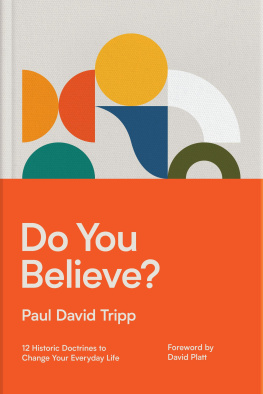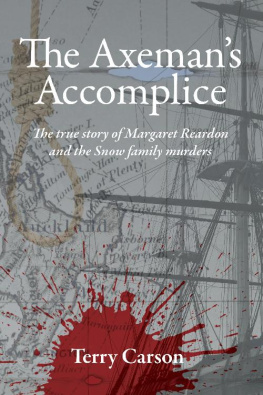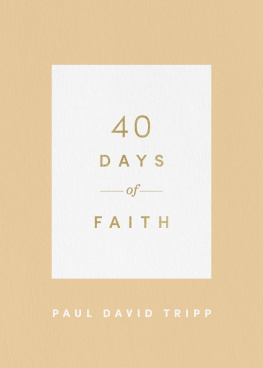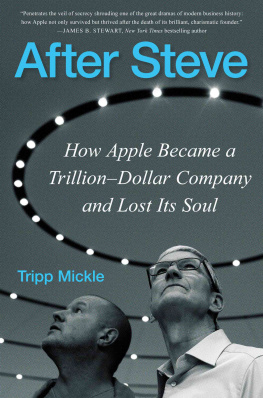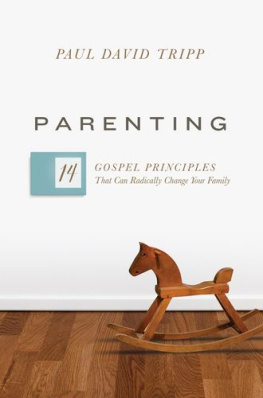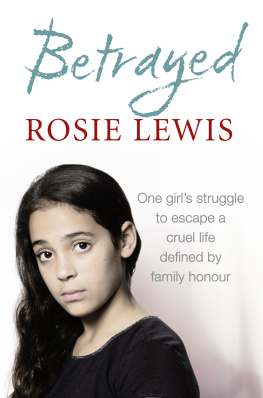Rob Tripp - Without Honour: The True Story of the Shafia Family and the Kingston Canal Murders
Here you can read online Rob Tripp - Without Honour: The True Story of the Shafia Family and the Kingston Canal Murders full text of the book (entire story) in english for free. Download pdf and epub, get meaning, cover and reviews about this ebook. year: 2013, publisher: HarperCollins Publishers, genre: Detective and thriller. Description of the work, (preface) as well as reviews are available. Best literature library LitArk.com created for fans of good reading and offers a wide selection of genres:
Romance novel
Science fiction
Adventure
Detective
Science
History
Home and family
Prose
Art
Politics
Computer
Non-fiction
Religion
Business
Children
Humor
Choose a favorite category and find really read worthwhile books. Enjoy immersion in the world of imagination, feel the emotions of the characters or learn something new for yourself, make an fascinating discovery.
- Book:Without Honour: The True Story of the Shafia Family and the Kingston Canal Murders
- Author:
- Publisher:HarperCollins Publishers
- Genre:
- Year:2013
- Rating:5 / 5
- Favourites:Add to favourites
- Your mark:
- 100
- 1
- 2
- 3
- 4
- 5
Without Honour: The True Story of the Shafia Family and the Kingston Canal Murders: summary, description and annotation
We offer to read an annotation, description, summary or preface (depends on what the author of the book "Without Honour: The True Story of the Shafia Family and the Kingston Canal Murders" wrote himself). If you haven't found the necessary information about the book — write in the comments, we will try to find it.
Rob Tripp: author's other books
Who wrote Without Honour: The True Story of the Shafia Family and the Kingston Canal Murders? Find out the surname, the name of the author of the book and a list of all author's works by series.
Without Honour: The True Story of the Shafia Family and the Kingston Canal Murders — read online for free the complete book (whole text) full work
Below is the text of the book, divided by pages. System saving the place of the last page read, allows you to conveniently read the book "Without Honour: The True Story of the Shafia Family and the Kingston Canal Murders" online for free, without having to search again every time where you left off. Put a bookmark, and you can go to the page where you finished reading at any time.
Font size:
Interval:
Bookmark:

For my children, and for Sarah, who inspires and loves me, brilliantly.
THE WOMAN SPRINKLED THE FINE GREEN POWDER into the basin. As she stirred, the sidr water turned the colour of bleached grass.
Norma Sargi had created this mixture from crushed lotus leaves hundreds of times before, for daughters, mothers, sisters, but never for so many at one time.
Twenty years of washing the dead.
Never three sisters.
Never four bodies.
The water swirled.
Sargi usually used it to flush away residueglue, tape, dried bloodstigmata that marked the dead with signs that the living had fought to save them. She found no signs on these four, though their torsos were unmistakably scored in that way that revealed they had been examined after death. She could not erase those marks.
The short, sturdy Lebanese woman had arrived at the private funeral parlour expecting to conduct the ritual washing and wrapping of one body. Instead, she found the slender bodies of three teenaged girls and a middle-aged woman, perhaps their mother, or aunt. She understood now why the sheikh had not sent her to the Islamic funeral parlour. It had facilities for the washing of only one body at a time. The work would have been too time-consuming there. It was important to complete the task as soon as possible, in keeping with the teachings of the Prophet. Some Muslims were buried on the same day they died. These four had already been dead five days.
Sargi and her assistant began to cry before touching them.
The sadness was good, she knew, expected even. It was an important part of the process, a reminder for all Muslims of the inevitability of death and the importance of doing charitable work before that time came. One day, Sargi would be awaiting judgment, hoping for the respect and caring she offered others in death. This day, the sadness pressed down with a weight she had not felt before.
The naked girls were on their backs, covered only by plastic sheets. They were lying on the washing tables, waist-high white porcelain platforms that each stood on a single thick stalk. There were only three tables, so the body of the older woman remained in an adjoining room.
Sargi, hidden beneath a dark cloak and headscarf, peeled away the sheet on the first body, Zainabs body, then gently draped a white cotton towel, skirt-like, across it. Looking at the dead girls face, the mother of seven confirmed what she had initially thought: She did not know the girls. She had never seen them at the mosque. She had not met their family.
Sargi wondered how these strong bodies had been broken, though she knew it was not her concern. Her duty was to prepare them for the journey ahead, so they could return to the earth. Without her help, their souls could not be free.
There was no one to answer Sargis questions. Though permitted, no relatives had come to help with Al-Ghusl, the washing, and Al-Kafan, the wrapping. These were unpaid virtuous acts, to be performed only by trustworthy and honest Muslims who would profit from their kindness in a manner that could not be measured.
Though it was unusual, Sargi was not concerned that no one had come to share the duty. She knew there were many good people too frail of heart for this. This was her obligation. As long as she could, she would help the dead.
Sargi began to recite the Quran, the Arabic verses flowing together in singsong cadence:
Bism-illah-ir-Rahman-ir-Rahim.
Al-Hamdu lillahi Rabbil-alamin.
Her voice, low and soft, had a dark timbre.
Sargi serenaded Zainab with the holy words as her thick fingers massaged the green water through the girls long mane of chestnut hair. There was too much to contain. Damp strands slipped away from the porcelain and plunged toward the floor. Sargi captured the tendrils and placed them back on the table.
Her fingers discovered the semicircle of staples that stretched from the left ear around the top of Zainabs head and down to her right ear. The washerwoman cleaned gingerly around the incision where the girls scalp had been bound back together.
Ar-rahmani ar-rahim.
Maliki yawmi d-din.
She began to wash the right side of Zainabs body, from the top of her shoulder down to her foot. Sargi scooped the cleaning fluid from the basin with a plastic pitcher and poured a small amount over the pale flesh. She stroked gently with her gloved hand, pushing the water. Zainabs skin was cool, soft. Droplets flowed toward the centre of her body, following a stapled incision, the left branch of the Y.
Zainab watched, felt the washerwomans touch, Sargi believed. Her spiritual certainty guided her delicacy. She caressed the skin. She did not scrub or scour. The dead would know if her touch were coarse, unkind. Zainabs soul was eager for its moment of supplication. A pure and honest act, this cleansing and wrapping would cast Zainab in the same simple form as every other Muslim who departed to face judgment.
Sargis helper stepped in and rolled Zainab onto her left side. The woman held the body while Sargi washed the right rear, from shoulder to foot. The process was repeated on Zainabs left.
The remaining sidr water was dumped from the bowl and replaced with fresh water and camphor. Sargi rinsed Zainab with this solution and then bathed her body a third time with clear water. Towels were used to dry the damp skin. The washing complete, Sargi folded Zainabs arms across her chest.
Sargis helper brought three pieces of kafan, plain white cotton that would be used to shroud the eldest sister, to dress her in death as all Muslims are dressed, symbolically pure and equal.
They pushed the first piece of kafan beneath her. The cloth was large enough to encircle Zainab from chest to knees. Sargi bundled Zainabs hair behind her head and, using the second piece of fabric, fashioned a head covering that left only Zainabs face exposed.
The final piece of cotton, rectangular and several feet longer than Zainab, was pulled beneath her. The sides were folded up so that the fabric cocooned the girl. At each end, Sargi tied the wrapping closed with a belt-width strip of fabric so that the body was completely hidden.
Zainab was done.
Sargi and her helper moved on to the second girl.
Thirteen-year-old Geeti had the markings of adulthoodpainted nails, pierced ears and a pierced navelbut the women saw a child.
They wept again.
When Geeti was done, they moved on to Sahar, and then lastly Rona.
When Sargi tied the final cord on Ronas kafan, three hours had elapsed from the moment she had first begun to bathe Zainab with cleansing fluid. She had caressed the curves and angles of each damp body with gentle fingers and had found no clue why four were taken together.
Knowing that only Allah can determine the time and place of a Muslims death did not dull the sadness or her desire to understand the cause of such a tragedy.
As Sargi left the funeral parlour, she asked the clerk working in the office how the four had died.
I think it was a car accident, she answered.
It seemed a reasonable explanation.
If you love someone, its a crime.
Zubaida Siddique
EIGHTEEN-YEAR-OLD RONA AMIR and Mohammad Shafia were a picture-perfect bridal couple, the beautiful eldest daughter of a retired army colonel and the handsome Kabul businessman. Shafia, accomplished at age twenty-five, smiled for snapshots with his porcelain bride on his arm. It was 1978, the year that Rona would later lament that her lot in life began a downward spiral. That day, in the crush of well-wishers and glare of flashbulbs that froze her mask of happiness, she did not see the turmoil ahead.
Next pageFont size:
Interval:
Bookmark:
Similar books «Without Honour: The True Story of the Shafia Family and the Kingston Canal Murders»
Look at similar books to Without Honour: The True Story of the Shafia Family and the Kingston Canal Murders. We have selected literature similar in name and meaning in the hope of providing readers with more options to find new, interesting, not yet read works.
Discussion, reviews of the book Without Honour: The True Story of the Shafia Family and the Kingston Canal Murders and just readers' own opinions. Leave your comments, write what you think about the work, its meaning or the main characters. Specify what exactly you liked and what you didn't like, and why you think so.

